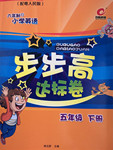题目内容
With no one to_______ in such a frightening situation, she felt very helpless
| A.turn to | B.turn on | C.turn off | D.turn over |
A
解析

 步步高达标卷系列答案
步步高达标卷系列答案The summer I was ten,my mother decided to bring us to the world of art.My brother and I were not very excited when we realized what my mother meant.What she meant was not that we could take drawing classes or painting classes but that we would have to spend one afternoon a week with her at the Fine Arts Museum.Before each visit to the museum,she made us read about artists and painting styles(风格).It was almost as bad as being in school.Who wants to spend the summer thinking about artists when you could be with your friends at the swimming pool?
First we had to read about ancient Egyptians(古埃及人)and their strange way of painting faces and then go to look at them at the museum.My 12-year-old brother thought this was so funny,but I was not interested.Later we had to learn about artists in the Middle Ages who painted people wearing strange long clothing.We had to look at pictures of fat babies with wings and curly(卷曲的)hair and with no clothes on flying around the edges of paintings.I certainly couldn’t see what was so great about art.
On our last visit to the museum,something happened when I saw a painting by a woman called Mary.In it,a woman was reading to a child.The colors were soft and gentle,and you could tell by the mother’s expression how happy she was just to be with the child.I couldn’t stop looking at this painting!I wanted to see every painting Mary had ever made!It was really worth looking at so many paintings to find a painter who could interest me so much.
1.The aim of the mother’s plan was to ________.
|
A.take them to visit the museum |
|
B.introduce them to the world of art |
|
C.ask them to read about artists |
|
D.show them different painting styles |
2.What was the writer’s experience in the museum before the last visit?
|
A.She came to feel her mother’s love. |
|
B.She liked many paintings. |
|
C.She hardly enjoyed herself. |
|
D.She could understand the pictures of fat babies. |
3.What made the writer go through a change that summer?
|
A.One of Mary’s paintings. |
|
B.A strange way of painting. |
|
C.Artists in the Middle Ages. |
|
D.Her mother’s instruction. |
4.From the text,we can see________.
|
A.the importance of curiosity |
|
B.the effect of art |
|
C.the value of learning |
|
D.the power of family education |